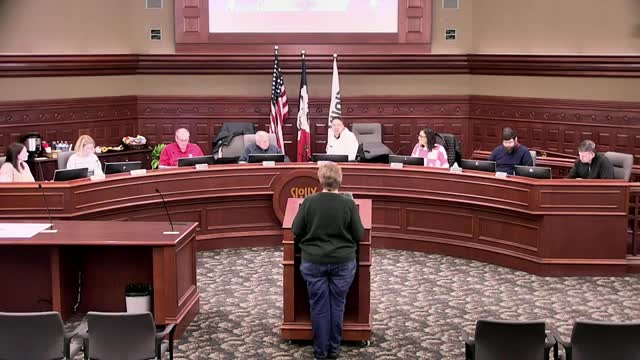Sioux City council hears FY26 operating budget; state rollback, lost backfill drive proposed levy increase
Get AI-powered insights, summaries, and transcripts
Subscribe
Summary
City staff presented a largely status‑quo $258 million operating budget Wednesday and warned that state changes to property tax backfill and a new rollback calculation will raise the local levy by roughly $50 per $100,000 of assessed value unless further cuts are made. Council approved a separate $18,409 reduction to the Human Rights budget.
Sioux City officials presented an updated FY2026 operating budget Wednesday and told the council that changes at the state level — not local spending choices — are the principal drivers of a proposed increase to the property tax levy.
Staff said the operating budget initially presented at roughly $260 million was revised after additional department-level reviews and one‑on‑one meetings. The updated proposed operating budget shown to the council is $258,340,139 after reductions and revenue adjustments; the net additional cost of recommended improvement requests to the operating budget is about $75,872.
City staff noted two state actions as major headwinds. The city is losing a multi‑year “backfill” that previously offset local revenue — cumulatively about $1.4–$1.5 million for the current year — and changes in state law on rollback calculations will add roughly $19 of the $50 increase per $100,000 of assessed value the city is projecting. Staff said Senate file 07/18 and House file 02/1952 were cited in the budget presentation as the statutory changes affecting this year’s revenue.
"This process starts back in July…we sat down with every department and went back through their budgets," a city budget presenter said, summarizing a recent line‑by‑line review that yielded roughly $811,000 in expense reductions and about $200,000 in additional revenue opportunities.
Why it matters: the presenter told the council that, absent the state's rollback change and the ending of the backfill, the levy would be roughly flat or lower this year. Instead, the staff said the revised levy proposal equates to about a $50 increase per $100,000 of valuation — $19 of which staff attributed directly to the rollback change enacted at the state level — and that the city has limited ability to offset those effects without further local cuts.
Council members pressed staff on where additional savings could be found and on which improvement requests were essential. Staff listed a range of department items presented during the hearing, including public safety equipment and personnel requests, a training/operations position sought for the Communications Center, and technical position cleanups at cultural departments where previously budgeted but unfilled positions were removed.
Public safety leaders told the council the requests are tied to equipment lifespans and growing workload. Police Chief Mueller described replacement of SWAT protective gear and a multi‑year increase in recruit and training needs tied to recent hiring classes. "While we believe the equipment probably lasts longer than that, the manufacturers don't certify that," Mueller said about armor and plate replacements.
Fire Chief Collins described a roughly 5% increase in the fire budget driven primarily by compensation and noted call volume growth. "Our call volume has increased 44% since 2016," Collins said, and added that administrative workload tied to the department’s expanded ambulance/EMS operations has increased demands on senior staff.
Wendy Hess, who requested a full‑time communications training operator for the city's dispatch center, urged investment to reduce burnout among trainers and improve onboarding consistency. "We are a high functioning, efficient department…we need some help with our training," she said, explaining the department's difficulty sustaining training while answering emergency calls.
Council action and votes at a glance: - Human Rights budget: The council voted 5–0 to reduce the Human Rights Office budget by $18,409. Roll call earlier in the meeting recorded Councilmembers Moore, O'Kane, Chaner, Scott and Waters present; the same five voted in favor of the cut. The reduction was moved and seconded during the budget hearing and carried on a unanimous vote. - Library reduction motion: A separate motion to reduce the library budget by $5,000 was made during the hearing but failed for lack of a second and did not proceed to a vote.
What happens next: staff told council members they will continue work with departments and return to the council during wrap‑up with final technical adjustments and any recommended reallocations. The presenter said recent department reviews had already trimmed more than $800,000 in expenses and that wrap‑up will include a full accounting of changes in CIP and debt service tied to council decisions.
Context and constraints: presenters repeatedly told the council that state policy decisions — changes to rollback calculations and gradual phasing out of backfill — are the major drivers of the expected levy change, and that local options are limited. Staff asked councilmembers to weigh in on priorities as the budget is finalized.
